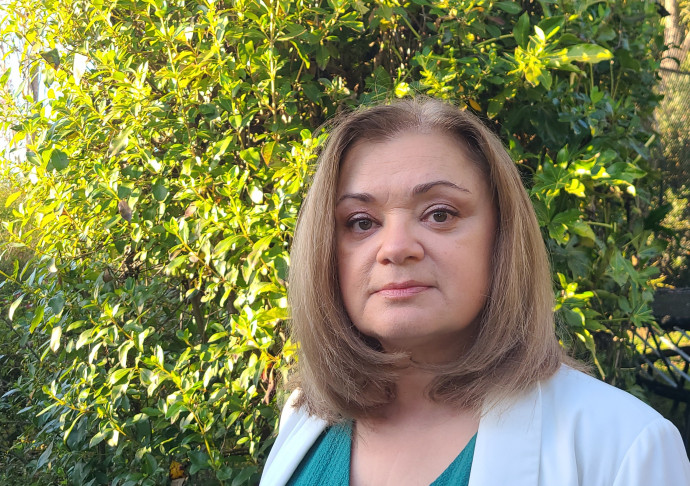2024 Mason Durie Medal: A leading voice on international relations

Professor Natalia Chaban has been awarded the Mason Durie Medal by Royal Society Te Apārangi for her innovative research into perceptions in international relations and public diplomacy, most recently about the war against Ukraine.
Professor Natalia Chaban is an internationally-recognised expert on political communication and perceptions in international relations and public diplomacy. She has researched Ukraine since its independence and has become an influential global commentator on how the war has impacted communication, expectations and attitudes internationally.
Originally from Ukraine, Natalia began her academic career by researching external images and perceptions of a newly independent Ukraine in the early 1990s.
Her later research features various themes in the field of international political communication and public diplomacy, and, most prominently, the European Union.
“I have continued to study international images and perceptions of Ukraine over the decades, including from the start of Russia’s war against Ukraine since 2014 and the full-scale invasion of Ukraine since 2022,” Natalia explains.
For over two decades her research has united scholars, diplomats, and students from around the world into collaborative research networks informing policymaking. Natalia is a founding expert in studying global perceptions of the European Union. Though this work, she challenges Eurocentric understandings of European Union foreign policy.
Natalia’s research focuses on cognitive and semiotic aspects of political and media discourses, image and perceptions studies within the European Union and international relations contexts, and public diplomacy and political communication.
Natalia is a professor at the Department of Media and Communication at Te Whare Wānanga o Waitaha | University of Canterbury. She is also a founder and director of the university's Public Diplomacy and Political Communication Forum research platform where she leads research and initiates diplomacy collaborations with scholars, diplomats and external relations experts from New Zealand and internationally.
The selection committee was impressed with Natalia’s role in the field of image and perception studies of the European Union, and as a prominent contributor to research on public diplomacy. They also saw great value in her role in researching and communicating about the ongoing war against Ukraine.
Natalia says that information is more important than knowledge – this idea, which she credits to Albert Einstein, has captured her research interest.
“How do images and perceptions of ‘Others’ – peoples, nations and countries – impact how we map the world in our mind and [impact] what course of actions we undertake towards our international partners and rivals?
“How do these mental images frame our expectations and attitudes vis-à-vis those actions, especially when we face war and peace in international politics?”
Reflecting on receiving the award, Natalia says her words of appreciation “go first to the brave country of Ukraine and its people”.
Her further list of thanks includes her husband and daughter for their support and “sense of humour in our very cross-cultural family”.
She also wanted to acknowledge her family in New Zealand for their interest in the world; her parents who continue to serve as bright examples of dedicated and creative educationalists; and her sister for being an upmost supporter.
Natalia says her PhD supervisor Professor Dr Svitlana Zhabotynska, an internationally-renowned expert of cognitive linguistics, has become her guide in academia and a life-long mentor.
She says Svitlana found her research interest in mechanisms behind global images and perceptions exciting and promising.
“And my many thanks go to my incredible collaborators in New Zealand and overseas whose passion about research, in-depth expertise, optimism and comprehensive outlook of the world continues to impress and inspire me.”
Natalia is a twice awarded Jean Monnet Chair awarded by the European Commission, President of Ukrainian Studies Association of Australia and New Zealand, a founding co-editor of the peer-reviewed Australian and New Zealand Journal of European Studies (with Scopus) and leader of several transnational research projects supported by the European Commission and NATO.
Mason Durie Medal:
For advances in the frontiers of social science that have had both national and international impact.
Citation:
To Natalia Chaban for outstanding and innovative research into perceptions in international relations and public diplomacy, most recently regarding the war against Ukraine.
